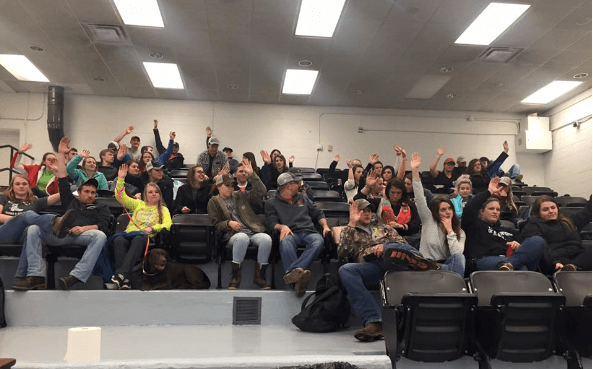Animal Science 3600E: Global Food and Agriculture, Honors
Class Description
The world today, and all industries within it, is an increasingly global one. This could not be truer with the agriculture industry: the global implications and interconnectedness of all agriculture is incredibly evident in our world today. And agriculture has come very far! As of today, we produce enough food to feed everyone in the world, we have way better yields by producing more food on less land, we have technology that focuses on environmental sustainability, we have tons of technology that improves the safety of food and its production, and we are innovating more ways to feed more people on less land with less resources everyday. Yet, even with all of this advancement and steps forward, we still have people starving, we still have famine. Yet, even with all of this, we still have countries, business, and organizations blatantly ignoring the effects of their production on the environment and our limited resources. Yet, even with all of this, globalization, with its good intentions, still can harm the food culture and economic stability of the countries and people it intends to help. For as far as agriculture has come, there are still challenges to face, serious issues to overcome, people to feed, and systems to improve.
This course addressed the three major concerns/topics mentioned above: famine, environment/limited resources, and globalization/trade. Through in-class discussion, academic reading written responses, in-class debates, evaluation of material and news, and a final Honors individual presentation, we evaluated these important concerns, the current state of agriculture, and what we, as professionals in agriculture and citizens of the world, can do for the future state of agriculture. We discussed many different countries and conflicts, and invited many different guest speakers with a wide variety of backgrounds to share their opinions and knowledge with us. This class aimed to get us to think critically, articulate clearly and carefully, and envision optimistically, all while giving us the tools to better understand the complex reality of agriculture and challenges it faces.
Countries discussed include: Argentina, Belize, Brazil, Costa Rica, Cuba, El Salvador, Ethiopia, Guatemala, Honduras, India, Ireland, Jamaica, Japan, Kenya, Malawi, New Zealand, Nicaragua, Niger, Panama, Somalia, South Africa, South Korea, United States, Uruguay, and others.
Class Reflection
I truly enjoyed taking this class as it challenged me to further expand my global understanding, educated me on agriculture-related topics in a wide variety of countries, and allowed me to develop my critical thinking and clear articulating skills. I gained a deeper appreciation about agricultural topics and complexities that are our industry and world faces today and will continue to face. My passion for global agriculture and making it the best it can be was lit even brighter. In the future, I will carry with me all the knowledge I gained and skills I developed in this class, and I hope to utilize them in a global agriculture role or job one day.
Final Honors Presentation
